“The crux of the matter is whether total war in its present form is justifiable, even when it serves a just purpose. Does it not have material and spiritual evil as its consequences which far exceed whatever good might result? When will our moralists give us an answer to this question?”
~John Hersey, author of ‘Hiroshima’
“This is the reality of nuclear weapons: they may trigger a world war; a war which, unlike previous ones, destroys all of civilization.”
~Joseph Rotblat, 1995 Nobel Peace Prize Laureate
****************************************
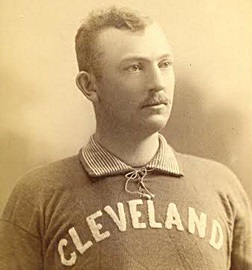
1890 – Future Hall of Fame pitcher Denton “Cy” Young threw 3-hit ball in his MLB debut for the Cleveland Spiders in 8-1 win over the Chicago Colts (later the Cubs).
Young’s first season record of 9-7 gave no indication of the baseball great he would become. Over his full career of 22 seasons, Young won an astounding 511 games (a record that will never be broken), threw 749 complete games (another record that won’t be matched), and had a career ERA of 2.63.
Incredibly, he failed to win induction into the Baseball Hall of Fame on the first try in 1936.
He was inducted in 1937 but barely made it. 151 votes were required for election and Young received 153.
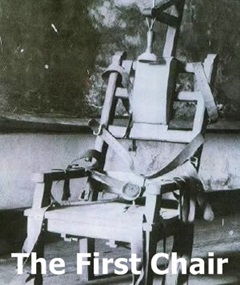
1890 – At Auburn Prison in New York, the first execution by electrocution in history was carried out against William Kemmler, who had been convicted of murdering his lover, Matilda Ziegler, with an axe.
Electrocution as a humane means of execution was first suggested in 1881 by Dr. Albert Southwick, a dentist. Southwick had witnessed an elderly drunkard “painlessly” killed after touching the terminals of an electrical generator in Buffalo, New York.
In the prevalent form of execution at the time – death by hanging – the condemned were known to hang by their broken necks for up to 30 minutes before succumbing to asphyxiation.
After Kemmler was strapped in, a charge of approximately 1000 volts was delivered for only 17 seconds before the current failed.
A second charge (with higher voltage) was applied for about two minutes, whereupon smoke was observed coming from the head of Kemmler, who was now clearly deceased. An autopsy showed that an electrode attached to his back had burned through to the spine.
Dr. Southwick applauded Kemmler’s execution with the declaration, “We live in a higher civilization from this day on.”
American inventor George Westinghouse, an innovator of the use of electricity, remarked, “They would have done better with an axe.”
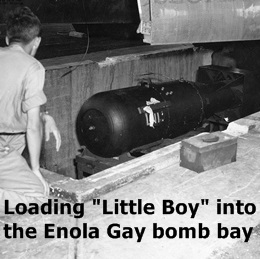
1945 – At 8:16 a.m. Japanese time, an American B-29 bomber, the Enola Gay, dropped the world’s first atom bomb over the city of Hiroshima.
President Harry S. Truman, discouraged by the Japanese response to the Potsdam Conference demand for unconditional surrender, made the decision to use the atom bomb to end the war in order to prevent what he predicted would be a much greater loss of life were the United States to invade the Japanese mainland.
On August 5, while a “conventional” bombing of Japan was underway, Little Boy (the nickname of the bomb), was loaded onto Lt. Col. Paul W. Tibbets’ plane on Tinian Island in the Marianas. Tibbets’ B-29 left the island at 2:45 a.m. on August 6.
Five and a half hours later, Little Boy was dropped, exploding 1,900 feet over a hospital and unleashing the equivalent of 15,500 tons of TNT.
There were 90,000 buildings in Hiroshima before the bomb was dropped; only 28,000 remained after the bombing.
Of the city’s 200 doctors before the explosion; only 20 were left alive or capable of working.
There were 1,780 nurses before; only 150 remained who were able to tend to the sick and dying.
Hundreds of schoolgirls were clearing fire lanes in the event of conventional incendiary bomb attacks. They were out in the open when the Enola Gay dropped its load.
Approximately 70,000 people were killed as a direct result of the blast, and another 35,000 were injured.
At least another 60,000 would be dead by the end of the year from the effects of the fallout.
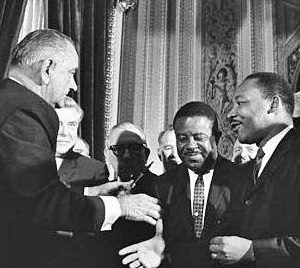
1965 – President Lyndon B. Johnson signed the Voting Rights Act prohibiting voting discrimination against minorities.
The Act had been introduced in Congress on March 17. Although Democrats held two-thirds of the seats in both chambers of Congress after the 1964 Senate elections, Johnson worried that Southern Democrats would filibuster the legislation, as they had opposed other civil rights efforts.
During the Senate debate, Senate Minority Leader Everett Dirksen (R-IL) said “legislation is needed if the unequivocal mandate of the Fifteenth Amendment … is to be enforced and made effective, and if the Declaration of Independence is to be made truly meaningful.”
Senator Strom Thurmond (D-SC) retorted that the bill would lead to “despotism and tyranny,” and Senator Sam Ervin (D-NC) argued that the bill was unconstitutional because it deprived states of their right under Article I, Section 2 of the Constitution to establish voter qualifications.
The House approved the bill on August 3 by a 328-74 vote (Democrats 217-54, Republicans 111-20), and the Senate passed it on August 4 by a 79-18 vote (Democrats 49-17, Republicans 30-1).
On August 6, President Johnson signed the Act into law with Dr. Martin Luther King, Jr., Rosa Parks, John Lewis, Ralph Abernathy, and other civil rights leaders in attendance at the signing ceremony.
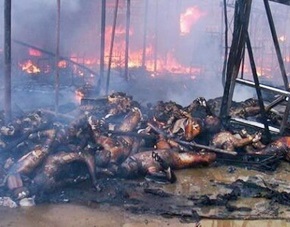
2001 – 28 inmates of a faith-based mental asylum died in a fire at Moideen Badusha Mental Home in Erwadi Village in South India. All the inmates were bound by chains on their beds as they awaited a “divine command” in their dreams to go back home.
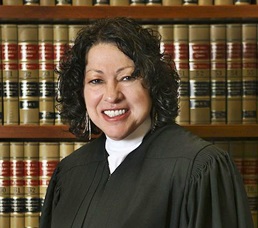
2009 – Sonia Sotomayor was confirmed as the first Hispanic Supreme Court justice by a Senate vote of 68-31.
During her tenure on the Supreme Court, Sotomayor has been identified with concern for the rights of defendants, calls for reform of the criminal justice system, and making impassioned dissents on issues of race, gender and ethnic identity.
Judge Sotomayor has a unique history of political nominations. She was nominated to the U.S. District Court by George H.W. Bush, a Republican president; promoted to the Federal Court of Appeals by Bill Clinton, a Democrat; and nominated for the U.S. Supreme Court by Democrat Barack Obama.
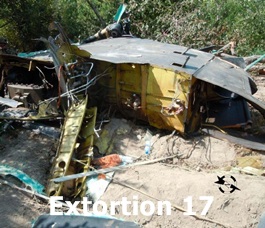
2011 – Insurgents shot down a U.S. military helicopter in Afghanistan, killing 38 onboard, including 30 Americans.
The helicopter, a U.S. CH-47D Chinook military helicopter operating with the call sign “Extortion 17” (pronounced “one-seven”) was coming to the rescue of a team on a mission to capture a senior Taliban leader.
It crashed after a Taliban fighter hit the aft rotor blade with a rocket-propelled grenade, resulting in a severe mechanical and dynamic imbalance that spun the Chinook out of control.
The crash, the worst single incident for the U.S. in Operation Enduring Freedom – Afghanistan, killed everyone on board, including 22 U.S. special forces soldiers as well as the crew and eight elite Afghan commandos.
Most of the soldiers were in the same Navy Seal Team Six unit that killed Osama bin Laden in May 2011, although none involved in the crash were believed to be part of the bin Laden operation.
Air Force Captain Joni Marquez, who was the firing officer on an AC-130 gunship which accompanied Extortion 17 on the flight, claimed that the gunship was denied permission to engage Taliban on the ground.
Captain Marquez claimed that if the AC-130 been allowed to fire on enemy insurgents on the ground, Extortion 17 would not have been shot down.
Compiled by Ray Lemire ©2005-2021 RayLemire.com. / Streamingoldies.com. All Rights Reserved.
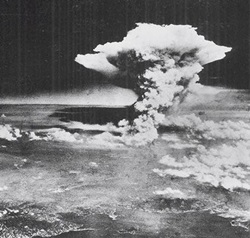
Another grim day in history. My Dad was on a ship on the way to invade Japan when the bomb was dropped. You could say I had a vested interest in the bombing. After the second bomb was dropped on Nagasaki, he was in the first group to occupy the city. Anyone who has not read Hersey’s book should really consider reading it. It is a short read but very intriguing. I have read it multiple times and always find something fascinating in it. It is a true classic.
This post is a serious way to start the weekend but people need to be reminded of the dangers of nuclear energy. Thank you Ray for the reminder.
Thank you, Don.
A big salute to your Dad for his service.
Hersey’s book should be required reading.
ROCK ON, BROTHER!
Another interesting lesson-pray that Atomic weapons are never used again. Cy Young was amazing. Baseball has changed so much-complete games are almost non-existent these days.
Thank you, Pat 🙂
The use of atomic weapons started the world down a very dangerous path.
I don’t recognize baseball. It sure isn’t the game I loved as a kid.
Ray between the looks of that chair and the reminder of the EnolaGay reminds me how much our world could be over with the push of a button!! I love the video’s and at least we had Cy Young!! Don what a story about your dad!! Ray I trust all is well and rock on and thank you for another great history lesson!!
Thanks, Fred. 🙂
Our world is (and always has been) too damn close to the edge. That’s why we all must make the most of every single day.
ROCK ON, BRO!
Fred, my Dad was at Iwo Jima , sent to Hawaii for R&R, then on a troop ship to invade Japan. He told me they would cruise toward Japan, turn around and head in a different direction and then back towards Japan. The idea was to confuse the Japanese. I can not imagine what that would do to your mind. After the two bombs were dropped the mission went from invasion to occupation.